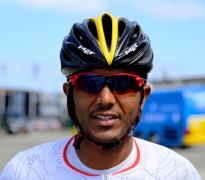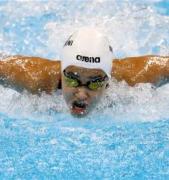Rio 2016
The 2016 Summer Olympics (Portuguese: Jogos Olímpicos de Verão de 2016),[a] officially known as the Games of the XXXI Olympiad and commonly known as Rio 2016, is a major international multi-sport event in the tradition of the Olympic Games as governed by the International Olympic Committee, being held in Rio de Janeiro, Brazil. Opening rounds in certain events began on 3 August 2016 — two days before the opening ceremony—and the Games is formally running from 5 August to 21 August 2016.
More than 11,000 athletes from 206 National Olympic Committees (NOCs), including first time entrants Kosovo and South Sudan, are taking part.[1][2] With 306 sets of medals, the games features 28 Olympic sports, including rugby sevens and golf, which were added by the International Olympic Committee in 2009. These sporting events are taking place at 33 venues in the host city as well as at five venues in the cities of São Paulo (Brazil's largest city), Belo Horizonte, Salvador, Brasília (Brazil's capital), and Manaus.
These are the first Summer Olympic Games under the IOC presidency of Thomas Bach.[1] The host city of Rio de Janeiro was announced at the 121st IOC Session held in Copenhagen, Denmark, on 2 October 2009. Rio became the first South American city to host the Summer Olympics. These are the first games to be held in a Portuguese-speaking country, the first to be held entirely during the winter (the 2000 games began on 15 September but continued past the spring equinox), the first since 1968 to be held in Latin America, and the first since 2000 (and third overall) to be held in the Southern Hemisphere.[3]
The lead-up to these Games have been marked by controversies, including the instability of the country's federal government; health and safety concerns surrounding the Zika virus and significant pollution in the Guanabara Bay; and a doping scandal involving Russia, which has affected the participation of its athletes in these Games.




